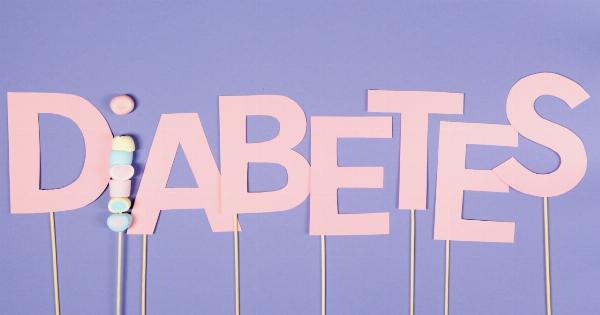Our brains are remarkable organs that control our thoughts, actions, and memories.
But did you know that the foods we eat can either enhance or impair our brain function? Just like any other part of our body, the brain requires the right nutrients to function at its best. Unfortunately, there are certain foods that can sabotage our memory and concentration, hindering our cognitive abilities. In this article, we will explore these brain busters and the impact they can have on our mental performance.
1. Sugar Overload
We all know that consuming excessive amounts of sugar is detrimental to our overall health, but it can also significantly impact our brain function. Studies have shown a strong link between high sugar intake and impaired memory and cognitive abilities.
When we consume sugary foods and beverages, our blood sugar levels spike, leading to inflammation and oxidative stress in the brain. This can cause brain fog, difficulty concentrating, and memory lapses.
2. Artificial Sweeteners
While artificial sweeteners may seem like a healthier alternative to sugar, they can still disrupt our brain function. Aspartame, sucralose, and other artificial sweeteners have been linked to decreased memory performance and increased forgetfulness.
Some studies even suggest that these sweeteners can disrupt the natural balance of neurotransmitters in the brain, affecting our mood and cognitive abilities.
3. Trans Fats
Trans fats are a type of unhealthy fat found in many processed and fried foods. These fats can have a detrimental effect on our brain health.
High intake of trans fats has been associated with an increased risk of cognitive decline, memory loss, and even Alzheimer’s disease. These fats can cause inflammation and damage blood vessels, impairing the flow of oxygen and nutrients to the brain.
4. High-Fructose Corn Syrup
High-fructose corn syrup (HFCS) is a common sweetener used in many processed foods and beverages. Consuming foods high in HFCS can lead to insulin resistance, which can impair memory and learning.
Additionally, high levels of fructose have been shown to interfere with the brain’s ability to form new memories, affecting our ability to retain and recall information.
5. Processed Foods
Processed foods are often high in refined carbohydrates, unhealthy fats, and additives, making them a triple threat to our brain health. These foods provide little nutritional value and can lead to inflammation and oxidative stress in the brain.
They can also disrupt the balance of gut bacteria, which has been linked to cognitive decline and mental health issues.
6. Alcohol
Excessive alcohol consumption can have a detrimental effect on our memory and concentration. Alcohol is a neurotoxin that can damage brain cells and hinder the communication between neurons.
Chronic alcohol abuse can lead to memory blackouts, difficulty concentrating, and even permanent cognitive impairment.
7. Caffeine Overload
While moderate caffeine consumption can provide a temporary boost in focus and alertness, excessive intake can have the opposite effect. Consuming too much caffeine can lead to jitters, anxiety, and difficulty concentrating.
Additionally, caffeine can interfere with our sleep patterns, which is essential for memory consolidation and optimal cognitive function.
8. High Sodium Intake
A diet high in sodium can wreak havoc on our brain health. Excessive sodium intake can lead to high blood pressure, which impairs blood flow to the brain. Reduced blood flow can cause cognitive decline and increase the risk of strokes and dementia.
Additionally, high sodium diets have been associated with cognitive impairment and difficulties with attention and focus.
9. Gluten
For individuals with gluten sensitivity or celiac disease, consuming gluten can lead to brain fog, difficulty concentrating, and overall cognitive impairment.
Studies have shown that gluten can trigger inflammation in the brain, affecting neural pathways and cognitive function. It’s important for those with gluten sensitivities to follow a gluten-free diet to optimize their brain health.
10. Dairy Products
While dairy products provide essential nutrients, they can also negatively impact brain function for some individuals. Some people may be sensitive to the proteins found in dairy, which can cause brain inflammation and impair cognition.
Additionally, high intake of saturated fats found in full-fat dairy products has been associated with an increased risk of cognitive decline.
It’s important to note that individual tolerances and sensitivities to certain foods may vary.
While these foods have the potential to sabotage memory and concentration, it’s essential to listen to your body and make choices that work best for you. Maintaining a balanced and nutritious diet, along with regular exercise and adequate sleep, is crucial for optimal brain health and cognitive performance.































